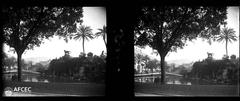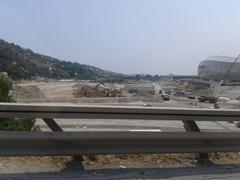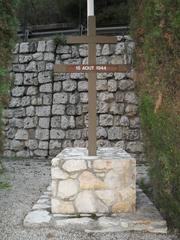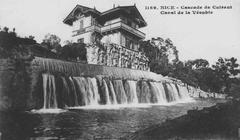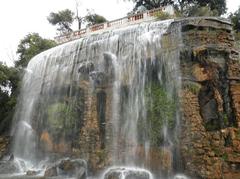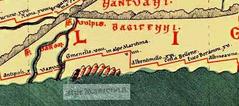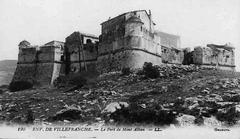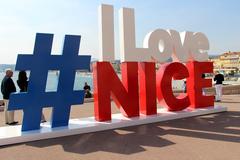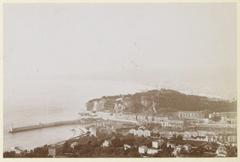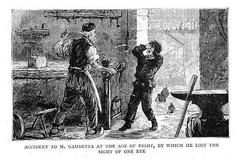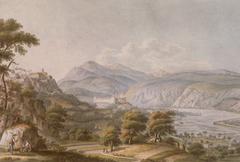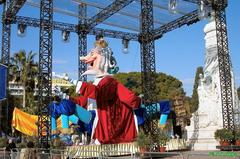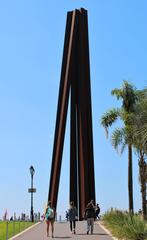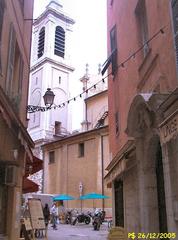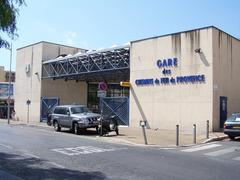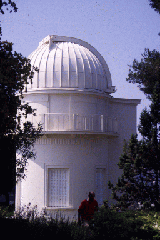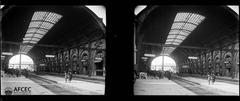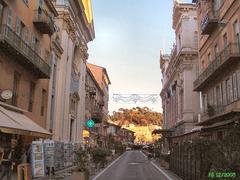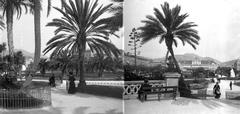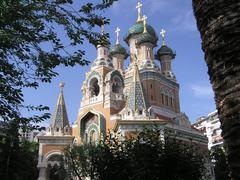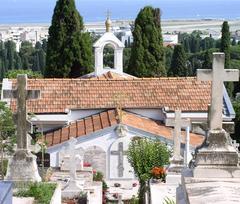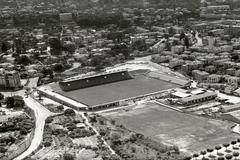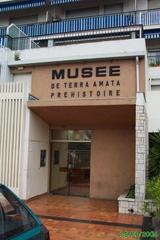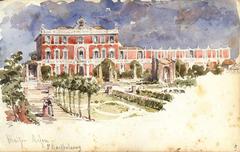
Saint-François Convent Visiting Hours, Tickets, and Historical Sites in Nice, France
Date: 04/07/2025
Introduction
Nestled in the heart of Nice’s Old Town, the Saint-François Convent is both a monument to medieval history and a vibrant center of culture and hospitality. Founded by Franciscan friars in the 13th century, the convent has evolved through centuries of transformation—surviving sieges, secularization, and restoration—while retaining its architectural grandeur and spiritual significance. Today, the convent is celebrated for its iconic Tour Saint-François, which offers panoramic views of the Mediterranean and the city’s rooftops, as well as for its fusion of historical authenticity and contemporary luxury.
Whether you are a history enthusiast, an architecture admirer, or a traveler in search of unique experiences, the Saint-François Convent stands out as one of Nice’s must-visit landmarks. This guide provides comprehensive, up-to-date information on visiting hours, ticketing, guided tours, accessibility, and travel tips, ensuring a memorable and well-informed visit.
For the latest updates, visitors are encouraged to consult the Nice Côte d’Azur Tourism website and the Hotel du Couvent platform. Downloading the Audiala app can further enhance your trip with curated guides and real-time notifications.
At a Glance: Visitor Essentials
- Location: 1 rue Honoré Ugo, 06300 Nice, France
- Opening Hours: Tuesday–Sunday, 10:00 AM–6:00 PM (may vary by season or event)
- Tickets: €10–€20; discounts for seniors and children; free for children under 7 (check current rates)
- Guided Tours: Available in French and English; advance booking recommended
- Accessibility: Main areas accessible; some historic sections and the tower may pose challenges
- Contact: +33 (0)4 12 05 55 60 | [email protected]
Historical and Cultural Overview
Origins and Evolution
The Saint-François Convent was founded in the early 13th century by Franciscan friars who sought a spiritual sanctuary in Nice. Their initial settlement in 1239 moved to the current site at the foot of Castle Hill in 1250, thanks to a land donation from local benefactor Augier Badat. Over the centuries, the convent expanded to include a church, cloister, cemetery, and friars’ quarters, symbolizing Franciscan values of humility and charity.
The convent’s history mirrors the city’s transformations—from its role as a religious and social hub to its secularization during the French Revolution and subsequent adaptation to changing urban needs. Despite suffering damage in the 1705–1706 siege and the loss of much of its original complex, key elements such as the Tour Saint-François and the church façade have been preserved and restored, earning historic monument status in 1993 (Provence Lovers).
Architectural Significance
The convent’s architecture blends Gothic, Renaissance, and Baroque influences. The Tour Saint-François, standing at 42 meters, is the best-preserved feature, notable for its medieval structure and 18th-century Baroque enhancements. Restoration projects led by Amelia Tavella Architectes have embraced a philosophy of “mutation rather than transformation,” carefully integrating contemporary materials like copper with historic stonework (architecturesstyle.com).
Copper extensions reflect natural light and develop a patina that harmonizes with the weathered stone, while the integration of vegetation—such as a centuries-old fig tree—demonstrates a sustainable approach to heritage preservation (eu-architecturalheritage.org).
Planning Your Visit
Visiting Hours and Tickets
- General Access: Tuesday–Sunday, 10:00 AM–6:00 PM (closed Mondays; hours may vary for holidays and events)
- Ticket Prices: €10–€20 for historical areas and guided tours; discounts for students, seniors, and children; free for children under 7
- Booking: Advance reservations are strongly recommended, especially in high season. Purchase tickets online or on-site; guided tours require booking in advance (Hotel du Couvent).
Guided Tours and Experiences
Guided tours explore the cloisters, gardens, and Roman baths, highlighting both the spiritual and architectural heritage. Tours are offered in French and English and often feature insights into the restoration process and the convent’s evolving role in Nice’s culture. Art exhibitions, concerts, and lectures are frequently hosted, enriching the visitor experience (Mies Arch).
Accessibility
Restoration has prioritized accessibility with ramps and elevators, but the historic nature of some areas—particularly the tower, accessed by nearly 300 spiral steps—means they may not be suitable for visitors with limited mobility. Contact the hotel or tourism office for personalized assistance.
Visitor Tips and Recommendations
- Best Time to Visit: Weekday mornings or off-season (spring, early autumn) for fewer crowds and milder weather
- What to Bring: Comfortable shoes for walking and stair climbing, water, and a camera
- Dress Code: Modest attire is recommended, especially in religious or quiet areas
- Photography: Allowed in most areas; some restrictions apply—always ask staff before photographing interiors
- Languages: French is primary; English widely spoken in hospitality and tours
Amenities and Nearby Sites
On-Site Facilities
- Accommodation: Hotel du Couvent offers 88 rooms and suites combining monastic simplicity with modern comfort.
- Dining: Enjoy Mediterranean cuisine using local, seasonal ingredients, with produce from the convent’s own gardens and regional suppliers.
- Wellness: Guests have access to Roman baths, yoga sessions, and a movement studio; day passes may be available for non-guests.
- Gardens & Terraces: Over one hectare of landscaped gardens and olive groves for relaxation and exploration.
Nearby Historical Sites
- Tour Saint-François: Climb for panoramic city and sea views (Nice & Beyond).
- Cathédrale Sainte-Réparate: Baroque cathedral on Place Rossetti (Provence Lovers).
- Cours Saleya: Famous for its flower and food markets and Baroque chapels.
- Palais Lascaris: Ornate palace with a musical instrument museum (Nice & Beyond).
- Promenade des Anglais: Iconic seaside boulevard for strolling or cycling.
Sustainability and Heritage
The convent’s restoration is a model of sustainable heritage conservation, balancing the use of original materials with contemporary design. Adaptive reuse as a hotel and cultural venue ensures ongoing preservation and public engagement, supported by local authorities and heritage organizations (EUMies Awards).
Frequently Asked Questions (FAQ)
Q: What are the visiting hours?
A: Typically 10:00 AM–6:00 PM, Tuesday to Sunday; check before visiting as hours may change.
Q: Are tickets required?
A: Yes, for guided tours and access to historical areas; prices range from €10–€20.
Q: Is the convent accessible for people with disabilities?
A: Main areas are accessible, but some historic spaces and the tower may present challenges.
Q: How do I book a tour?
A: Book online through the hotel’s website or contact the Nice tourism office.
Q: Can I take photographs?
A: Photography is allowed in most areas; some restrictions apply inside—ask staff for guidance.
Contact and Further Information
- Address: 1 rue Honoré Ugo, 06300 Nice, France
- Phone: +33 (0)4 12 05 55 60
- Email: [email protected]
- Website: Hotel du Couvent
- Tourism Info: Nice Côte d’Azur Tourism
Summary and Recommendations
The Saint-François Convent encapsulates the spirit of Nice: a city where medieval heritage, architectural splendor, and Mediterranean culture intersect. Its carefully preserved cloisters, panoramic tower, and contemporary amenities make it an essential destination for travelers exploring the French Riviera. Whether you come for the history, the views, or the tranquil gardens, plan ahead for a seamless experience—book tours in advance, check current opening hours, and consult official resources for updates.
For further enrichment, explore nearby landmarks in Vieux Nice, sample local cuisine, and leverage digital tools like the Audiala app for personalized guidance and up-to-date travel information.












